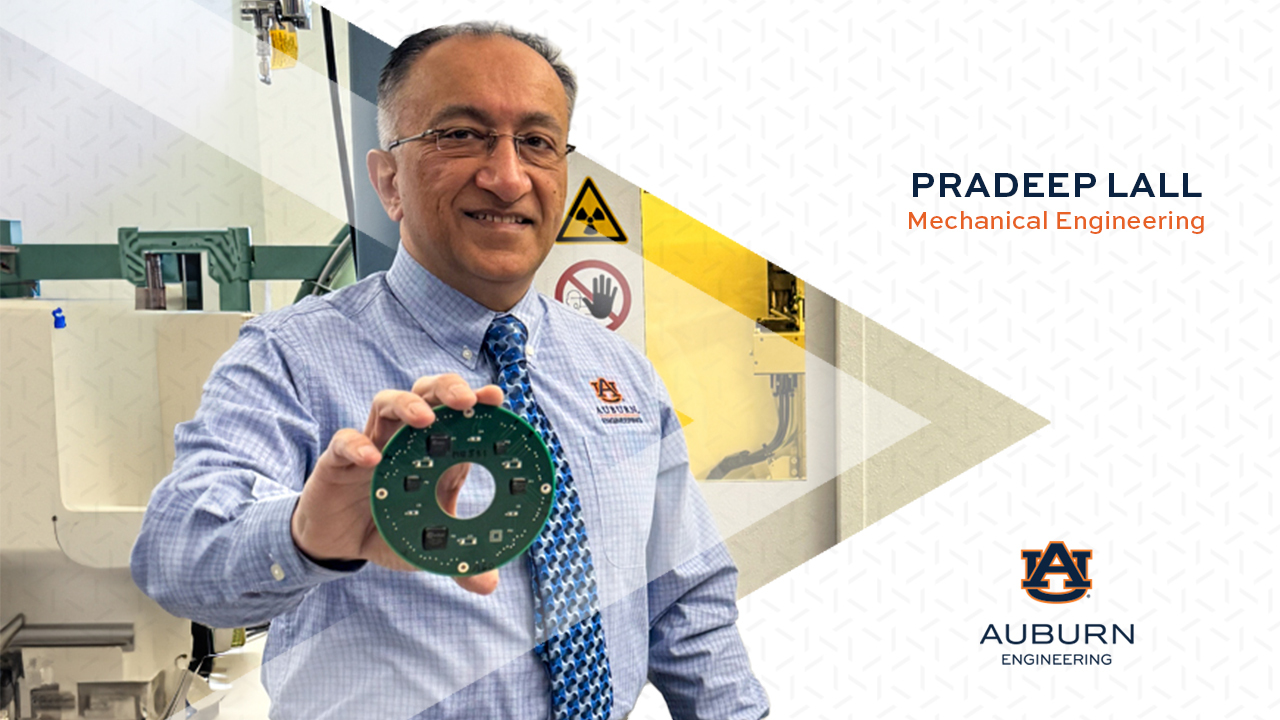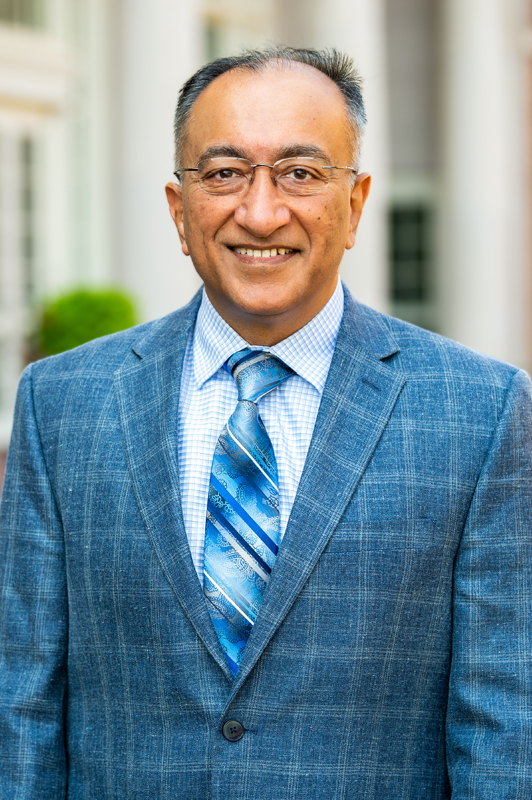Electronics sustainability focus of mechanical engineering professor's latest SRC program success
Published: Jan 19, 2024 3:00 PM
By Jeremy Henderson
The decades-long legacy of competitively won Semiconductor Research Corporation (SRC) programs secured by Pradeep Lall continues to grow.
Lall, the MacFarlane Endowed Distinguished Professor and Alumni Professor in the Department of Mechanical Engineering, recently won a $315,000 SRC proposal focused on the development and characterization of non-per- and polyfluoroalkyl substance (non-PFA) materials for electronics packaging.
SRC, a globally renowned high-technology consortium consisting of more than 20 premier semiconductor companies, selected Lall’s proposal in a two-stage competition consisting of a white paper followed by a full proposal. Lall is the long-time director of the NSF-CAVE3 Electronics Research Center, which has achieved global prominence for advancements in extreme environment electronic systems under his tenure. He previously served the center as associate director.
“PFAS are used for a number of functions in the design and fabrication of electronic packaging," Lall said, "but the robust carbon-fluorine bond used in PFAS persists in nature long after the use life of the product."
Often called "the forever chemical," PFAS have been detected in water and food supplies, and studies have linked them to a number of detrimental health effects.
"The important functions fulfilled by current generation PFAS in electronics and the dearth of non-PFAS solutions have made combatting those effects a challenging problem,” Lall said.
Identifying environmentally friendly solutions to that problem has been a sustained focus of Lall’s research. His team is also working on developing sustainable additively manufactured electronics using water-based inks under a different competitively won program under the NextFlex Project Call 7.
“Our team has continued to look for ways to advance methods for manufacture and realize sustainable electronics,” Lall said. “The use of water in additive processes targets the elimination of toxic waste resulting from the volatile organic solvents used in the carriers of the prior generation of additive inks.”
In 2006, Lall developed modeling solutions for the use of lead-free electronics in harsh high-strain rate environments in accordance with the Environmental Protection Agency’s Removal of Hazardous Substances initiative; in 2022, Lall earned the ASME Avram Bar-Cohen Medal for similar research in electronics packaging.
Lall calls efforts toward eliminating PFAS electronics "one of the seismic shifts" in the electronics industry.
"The pervasive nature of electronics in everyday life, along with the volume of electronics and the pace of technology progression, has translated to a significant increase in electronics waste,” he said. “There are indications of impending regulations regarding the elimination of all PFAS from consumer products Owing to the connected nature of the electronics supply chain, any such regulations would impact electronics at all levels, from chips to systems.
"The development of non-PFAS solutions for electronics will yield lasting benefits for the current and future generations. We're proud to be leading that charge.”
Media Contact: , jdh0123@auburn.edu, 334-844-3591


